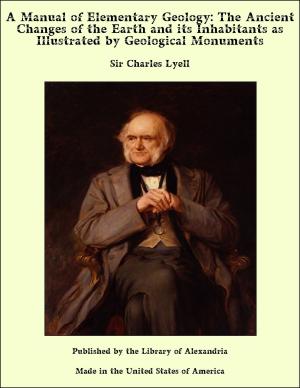| Author: | John Presland | ISBN: | 9781465532022 |
| Publisher: | Library of Alexandria | Publication: | March 8, 2015 |
| Imprint: | Language: | English |
| Author: | John Presland |
| ISBN: | 9781465532022 |
| Publisher: | Library of Alexandria |
| Publication: | March 8, 2015 |
| Imprint: | |
| Language: | English |
DEVONSHIRE The original Celtic name for Devonshire, the name used by the Britons whom Caesar found here when he landed, was probably “Dyfnaint,” for a Latinized form of it, “Dumnonia” or “Damnonia,” was used by Diodorus Siculus when writing of the province of Devon and Cornwall in the third century A.D. So that the name by which the men of Devon call their country is the name by which those ancient men called it who erected the stone menhirs on Dartmoor, and built the great earth-camp of Clovelly Dykes, or the smaller bold stronghold of Countisbury. At least, conjecturally this is so, and it is pleasant to believe it, for it links the Devon of our own day, the Devon of rich valleys and windy moors, the land of streams and orchards, of bleak, magnificent cliff and rock-guarded bay, of shaded combe and suave, fair villages, in an unbroken tradition of name and habitation with the men of that silent and vanished race. Up and down the length of England, from the Land’s End to the Northumbrian dales, lie the traces of these far-off peoples whose very names are faint guesses preserved only in the traditions of local speech. Strangely and suddenly we come upon the evidence of their life and death: here a circle of stones on a barren moor or bleak hilltop, there a handful of potsherds or a flint arrowhead; sometimes, indeed, though rarely, the bones of their very bodies, laid aside in earth-barrows or stone coffins for this unknown length of years. And there the most unreflective among us feels a sudden awe and wonder at the momentary vision of the profound antiquity of this land in which we live, and for a few moments all desires and aims seem futile in face of this immemorial past. Only for a few moments, though, and then we step from the “Druid Circle,” or turn away from the barrow, and the current of our everyday life takes us up once more
DEVONSHIRE The original Celtic name for Devonshire, the name used by the Britons whom Caesar found here when he landed, was probably “Dyfnaint,” for a Latinized form of it, “Dumnonia” or “Damnonia,” was used by Diodorus Siculus when writing of the province of Devon and Cornwall in the third century A.D. So that the name by which the men of Devon call their country is the name by which those ancient men called it who erected the stone menhirs on Dartmoor, and built the great earth-camp of Clovelly Dykes, or the smaller bold stronghold of Countisbury. At least, conjecturally this is so, and it is pleasant to believe it, for it links the Devon of our own day, the Devon of rich valleys and windy moors, the land of streams and orchards, of bleak, magnificent cliff and rock-guarded bay, of shaded combe and suave, fair villages, in an unbroken tradition of name and habitation with the men of that silent and vanished race. Up and down the length of England, from the Land’s End to the Northumbrian dales, lie the traces of these far-off peoples whose very names are faint guesses preserved only in the traditions of local speech. Strangely and suddenly we come upon the evidence of their life and death: here a circle of stones on a barren moor or bleak hilltop, there a handful of potsherds or a flint arrowhead; sometimes, indeed, though rarely, the bones of their very bodies, laid aside in earth-barrows or stone coffins for this unknown length of years. And there the most unreflective among us feels a sudden awe and wonder at the momentary vision of the profound antiquity of this land in which we live, and for a few moments all desires and aims seem futile in face of this immemorial past. Only for a few moments, though, and then we step from the “Druid Circle,” or turn away from the barrow, and the current of our everyday life takes us up once more















